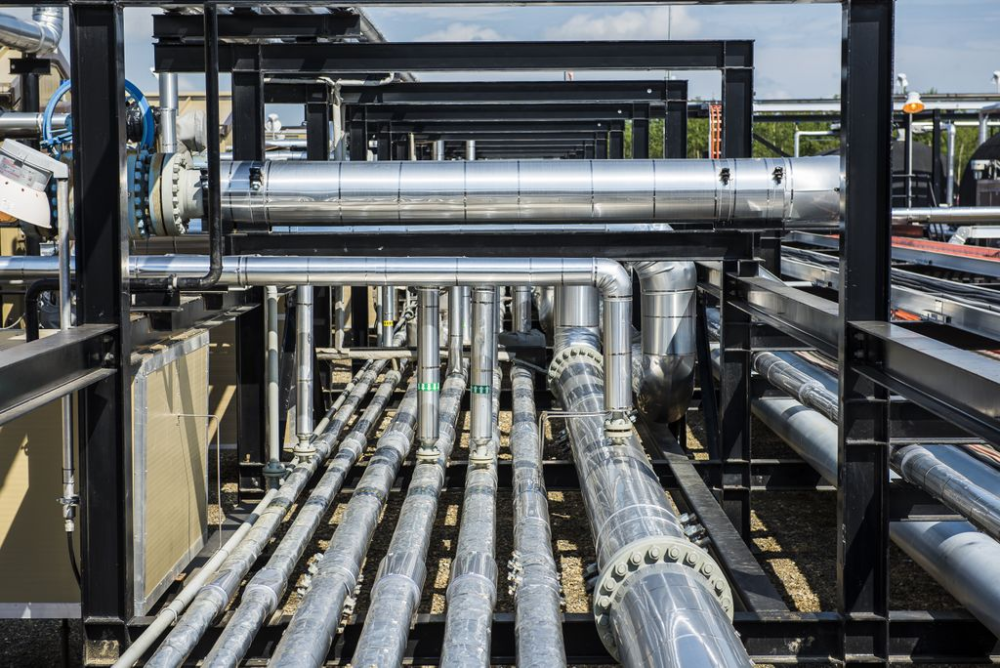A joint initiative between industry, government, the regulator and non-profits is advancing research on methane emissions from oil and gas activity to support B.C.’s methane emission reduction targets.
The BC Oil & Gas Methane Emissions Research Collaborative (MERC) is comprised of the Ministry of Environment and Climate Change Strategy; the Ministry of Energy, Mines and Petroleum Resources; the BC Oil and Gas Commission; the Canadian Association of Petroleum Producers; Explorers and Producers Association of Canada; Geoscience BC; and the Pembina Institute.
Although provincial methane emissions reduction initiatives are already underway, including CleanBC, the Collaborative was created to focus research efforts toward managing and reducing the release of methane from oil and gas operations.
The provincial and federal governments have set targets for reducing methane emissions from upstream and venting oil and gas operations. The Government of B.C. has a reduction target of 45 per cent by 2025, relative to 2014 levels, while the Government of Canada has set a reduction target of 40-45 per cent by 2025, relative to 2012 levels. More details on the new methane regulations can be found here.
Through the memorandum of understanding (MOU), parties agree to share funding, information and resources to improve research efficiencies and broaden scientific understanding of methane emission sources, detection and measurement methods, and emission reduction and control technologies that can be implemented by oil and gas operators. Data and information gained through research projects under the MOU will be made publicly available.
“Advancing research on methane emissions is an important aspect of maintaining an environmentally responsible oil and gas sector”, said Michelle Mungall, Minister of Energy, Mines and Petroleum Resources. “In addition to the regulations we recently updated, this initiative will help us achieve our CleanBC commitments and support our work to build a better B.C.”
“We will investigate leading technology and identify best practices – including those to address the detection and repair of leaks in the natural gas sector. The work of the research collaborative will result in applying and adapting new technologies to B.C.’s resources beginning in 2023,” said George Heyman, Minister of Environment and Climate Change Strategy. “Our response will ensure we capture the most methane for the least cost, keeping the sector economic while reducing carbon pollution from major emitters.”
“As Canada and B.C. move forward with methane reduction strategies, the development of sound and fit-for-purpose technologies for measurement, detection and monitoring is essential,” said Ken Paulson, Executive Vice President and Chief Operating Officer of the BC Oil and Gas Commission. “The creation of the BC Oil & Gas Methane Emissions Research Collaborative provides a shared platform to support research and technology development here in B.C.”
“Our long history of technological advancement has steadily improved our environmental performance with respect to reducing and controlling emissions,” said CAPP Executive Vice-President, Operations and Climate, Terry Abel. “Our industry’s ongoing commitment to innovation continues to unlock new technologies and process improvements that enables us to make substantial progress toward a lower carbon energy system, while expanding opportunities for our responsible development to meet growing global energy needs and helping to create prosperity for the people of British Columbia.”
“EPAC is pleased to support the BC Oil & Gas Methane Emissions Research Collaborative and its work designed to ensure that methane emissions reductions initiatives are based on a solid foundation of science and research,” said EPAC President Tristan Goodman.
“Being part of this collaborative group is critical in guiding Geoscience BC’s research into innovative and practical ways to detect and reduce greenhouse gas emissions,” said Geoscience BC Executive Vice President & Chief Scientific Officer Carlos Salas. “It is also a great way of ensuring no duplication of research efforts while addressing identified knowledge gaps.”
“Reducing methane emissions from the oil and gas sector is one of the lowest-cost opportunities to reduce carbon pollution and key to meeting our climate goals in B.C.,” said Maximilian Kniewasser, Director of the B.C. Clean Economy Program at the Pembina Institute. “The Pembina Institute is pleased to be a partner in this joint initiative and looks forward to increasing understanding of methane leaks and advancing solutions to this problem.”
A Technical Advisory Committee supports the Collaborative as a key contributor of technical ideas and knowledge, while a Steering Committee provides oversight and operational guidance. As outlined in CleanBC, the Province will be assessing leading technologies and evolving best practices in the natural gas sector over the coming years to help achieve a 45 per cent reduction in methane emissions from upstream oil and gas operations by 2025.
[30]
Should you have any questions regarding this News Release, please contact any of the following individuals:
Lannea Parfitt
Manager, Communications
BC Oil and Gas Commission
250-980-6081
Lannea.Parfitt@bcogc.ca
Elisabeth Besson
Advisor, Media Relations
Canadian Association of Petroleum Producers
403-267-1179
Elisabeth.Besson@capp.ca
Tristan Goodman
President
The Explorers and Producers Association of Canada
403-269-3454
tristan.goodman@explorersandproducers.ca
Richard Truman
Director, External Relations
Geoscience BC
604-662-4147
truman@geosciencebc.com
Stephen Hui
Communications Lead
Pembina Institute
778-987-7654
stephenh@pembina.org




